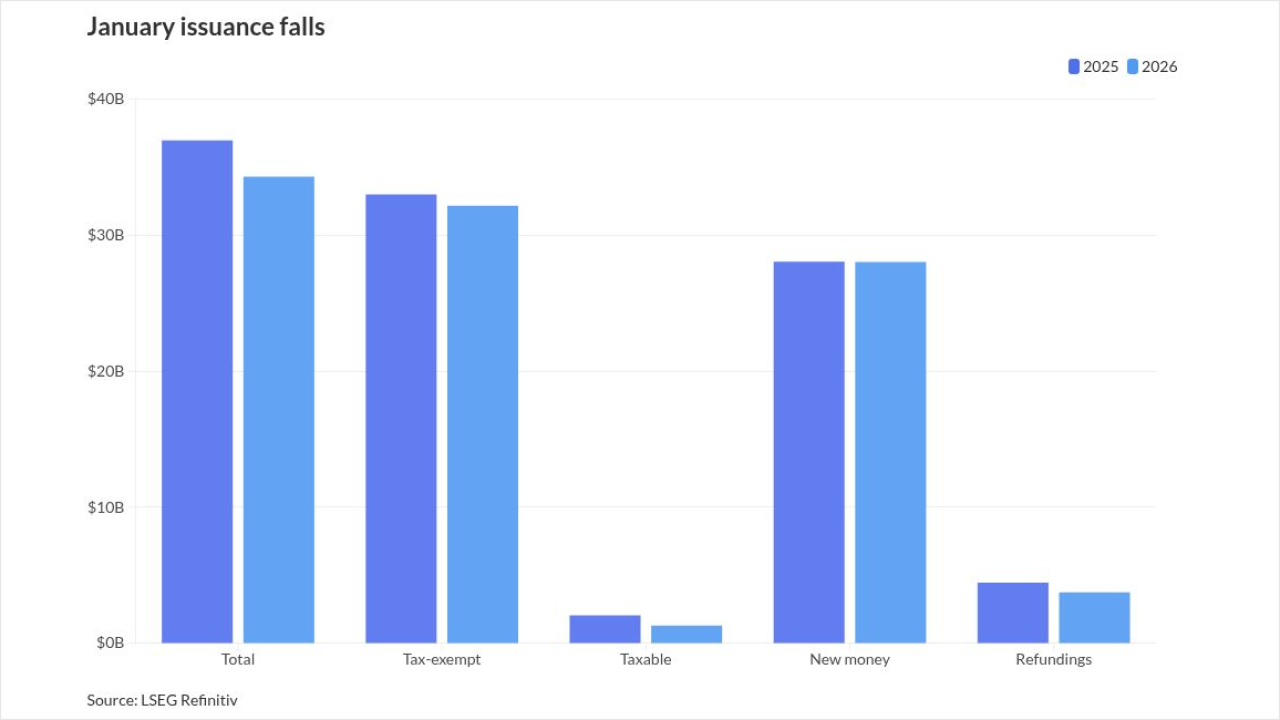WASHINGTON - Budgets in the 31 states and the District of Columbia that have expanded their Medicaid health services to the poor would take a hit under the proposed health legislation released Thursday by Senate Republicans.
Moody’s Investors Service issued a negative credit profile for states Thursday because the Senate bill would shift the state-federal partnership on paying for the expansion of Medicaid coverage toward the states.
“The changes to core program funding, and the phase-out of the nearly four year-old Medicaid expansion program, would force states to make hard choices such as adjusting eligibility or reducing payments to providers," Genevieve Nolan of Moody’s said.
On the other hand, the legislation wouldn’t constitute an unfunded federal mandate and states “have many budget levers they can pull to balance operations,’’ the Moody’s spokeswoman said.
The Urban Institute estimates the House bill would reduce federal Medicaid spending by $373.6 billion, or 8.2%, between 2019 and 2028 if program eligibility is not changed. That assumes the states would pick up the additional costs. States, of course, have the option of reducing eligibility, cutting benefits or cutting payments to medical providers.
The Senate bill joins the House-passed legislation in repealing the reduced share of Medicaid costs that states have enjoyed when they have expanded coverage. And both bills place a future cap on Medicaid payments to the states that is linked to inflation.
The National Governors Association didn't issue a statement in response to the public release of what Senate Republicans called a “discussion draft.’’
But NGA Chair Terry McAuliffe, the Democratic governor of Virginia, predicted the bill “would cost Virginia’s budget hundreds of millions of dollars by placing a per-capita cap on Medicaid, leaving us with the choice to cut critical health and long-term care services for people who need them, slash schools and transportation, or raise taxes.’’

Earlier this week, the NGA’s Center for Best Practices released a report on health care emphasizing the "critical importance'' of maintaining current federal reimbursement rates for Medicaid, especially in the so-called expansion states. Only Kentucky disagreed on that point with the 12 other states that participated in the report.
"States that did not expand Medicaid are seeking to either continue to have that opportunity at the federal matching rate under current law or to extend or modify coverage with additional state flexibility to tailor populations covered and benefits,'' the report said.
This year the District of Columbia and the 31 states that chose to expand Medicaid coverage under the 2010 Affordable Care Act are paying 5% of the Medicaid costs of those people receiving health services because of the expansion. That’s scheduled to increase to 6% in 2018, 7% in 2019 and 10% in 2020.
However, the House-passed American Health Care Act eliminates that favorable state share in 2020, making states revert to their traditional share of Medicaid costs which range from 50% in New York to 25% in poor states.
The Senate bill phases in the higher state share of covering the expanded Medicaid population a couple of years longer, according to John Holahan of the Urban Institute. But it eventually imposes a stricter cost-of-living limit on overall Medicaid payments to each state than the House version.
“It definitely gives states more breathing room,’’ Holahan said. “It’s more generous in the early years and a lot less generous in the later years.’’





